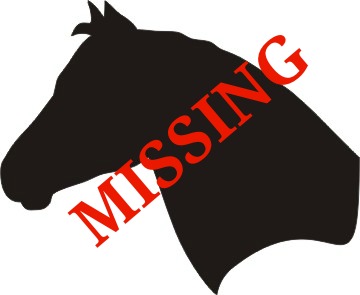Stolen Horses and the Cunning Man October 15, 2015
Author: Beach Combing | in : Contemporary , trackbackCunning men were the healers and magicians of the English countryside from the middle ages up until the reign of George V. They had various jobs: including making love potions, casting birth charts, healing animals and individuals, and undoing witchcraft. However, the activity that got them most in the newspaper was their talent for finding things. A woman loses a ring, a man loses a watch… They go to the cunning man and ask him to scry out its location. In this case it was horses:
A short time since, three persons residing a short distance from Blakeness, in the Forest of Dean, turned out a horse (each to graze). Finding but a short crop of grass, the animals strayed. the owners missing them, a consultation took place, and it was resolved to seek the assistance of the cunning man, who resides near, with the view of obtaining possession of the truant steeds. A fee of 1 s. 6 d. each soon set the man of stars plunging into the mysteries of his craft; and after various portentous consultations with this and that planet, and the casting up of mysterious problems, the sage, with the greatest solemnity, assured his confiding dupes that their horses had been stolen; that they had already passed through two market towns, and were then being driven through Iron Acton, and that ‘men and women’ were concerned in the robbery.
Naming a thief was always dangerous as, of course, the cunning man was frequently wrong and those name did not always appreciate the attention. However, in this case the cunning man in question kept generic. Surely ‘men and women’ could not get him in trouble could it?
Thus enlightened, the horse-hunters, in high glee, left their cunning friend; and resolving to lose no time, at once crossed the Severn, and calling at a police station, requested some of the guardians of persons and property to accompany them in the chase after the thieves. The police, however, ascertaining the source of their information, prudently declined the invitation.
There are cases where the police relied on such information, the equivalent of policemen going to the psychic with contemporary crimes, but another post another day.
Nothing daunted, the intelligent trio, after a few maledictions on the blue-coats, proceeded to Acton, where ‘confirmation strong’ of the oracle of the Forest was soon forthcoming, for a number of gypsies had been seen to pass through the town with some horses! Certain they were the ‘men and women’ who were in possession of their horseflesh, the gallant hunters confided further chase to the police, telling them they had thence traced their lost horses, carefully avoiding, however, all allusion to a ‘cunning man’ being their informant. The gypsies were traced by the police through Bristol, and some distance beyond, but no stolen horses could be found in their possession.
Of course, the delicious denouement now follows.
The horse-hunters duly returned home, doubtless filled with admiration at the skill of the cunning man; but alas for his infallibility, one of the animals had, in the interim, strayed to its original place, where it was found quietly browsing [sic], and the others were in a day or two discovered straying by the police, one at Breadstone Farm, and the other at Monmouth. We understand this same cunning man is much consulted by the poorer classes of the locality, but his reputation will be somewhat damaged by this occurrence. Silurian, Cardiff, Merthyr, and Brecon Mercury, 7 Jun 1851, 2
Beach doubts that. Any other good cunning men stories: drbeachcombing At yahoo DOT com
30 Oct 2015: Southern Man ‘There is a famous case from 1889 near Salisbury (Southern England) where the police were encouraged to a chase a ‘gypsy’ on the advice of spirit that communicated through raps: she had stolen onions. They did so but did not find her.’ Reference Owen Davies, Witchcraft, Magic and Culture 35-38



